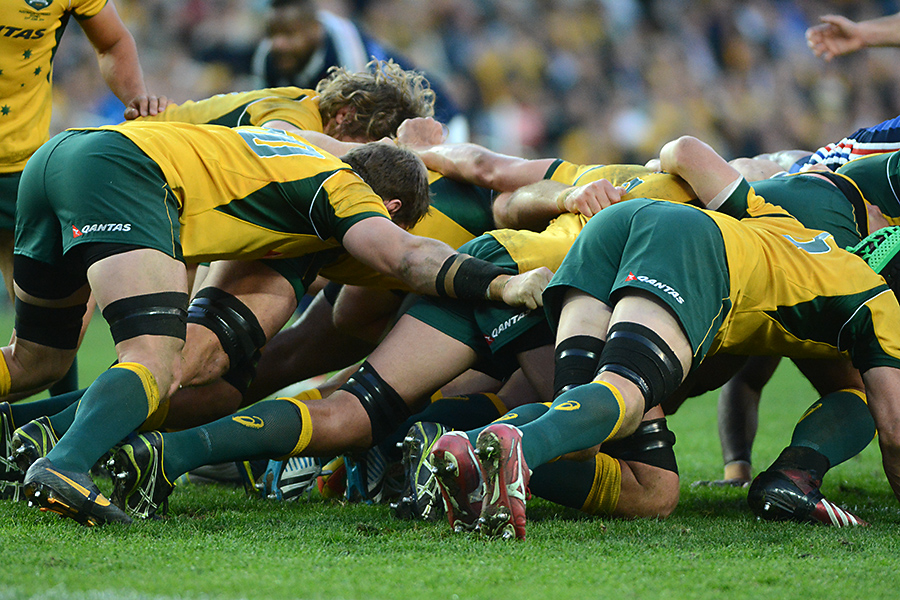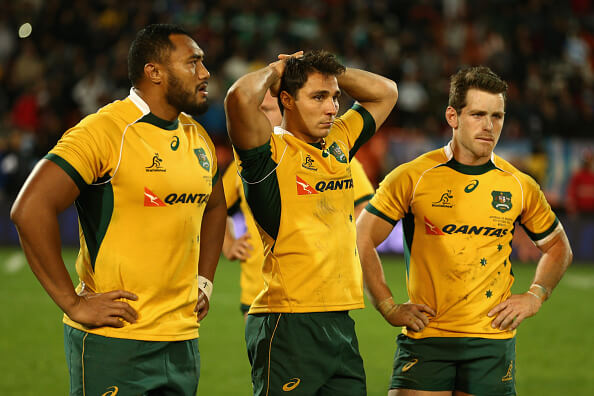There has been a lot of talk about the bench and their performance for the Wallabies at Newlands last Saturday night. To go with the talk, there are a lot of theories about how to fix it. It’s been suggested it’s a fitness issue. It’s been suggested it’s a problem with the depth of available players. It’s been suggested it’s an issue with strategy.
Lots of suggestions. Not much that’s concrete, though.
In my quest for meaning, I found myself staring at the timeline in the ESPN stats pack – lamenting the lack of points on the Australian side in the second half. On a hunch, I had a look back at previous matches and found the same thing. Very few points in the second half.
More specifically, it is the period between 50 and 70 minutes where there aren’t that many points scored in a game. It seems logical. That’s when legs are tiring and concentrations are waning. I guess it’s why the AFL guys call the third quarter the “Championship Quarter”.
A look through a hundred or so games confirmed the stat. Scoring slows down in the 50 to 70 minute period in most games. And not surprisingly, it’s the losing team who slows down the most.
So, why is the 50-70 minute period so important? Well, after 70 minutes, the stats are a write-off. Scores blow out in that period or a well-beaten opponent scores a late try or two when the winners’ intensity falls off.
Up to 50 minutes, the enthusiasm from half-time rest is still there. Also, 50 minutes is where the bench starts to appear, but we’ll get to that a little later.
I wondered whether scoring between 50 and 70 minutes is a good marker and sat down to figure out whether it was. To do so, I looked at New Zealand, South Africa, Australia, England and Ireland. I calculated the average points scored between 50 and 70 minutes for each of them in the last 12 months.
Some hours later, I found something. What I found surprised me. In order – from most points to lowest – the order was:
- New Zealand
- South Africa
- Australia
- England
- Ireland
Look familiar? Sure it does. It’s the IRB top 5 list. Which is not surprising, since that’s what I started with. What is surprising is that it is in order of the rankings.
I didn’t go any further, since I had spent long enough. I also suspect that the quality of the measure changes as the quality of opposition does. Nonetheless, I thought I had discovered a measure that might be useful in some way, shape or form.
I didn’t really know how useful at first…..
So, Where’s the Problem?
Since I am a prize nerd and an absolute fixated Rugby bore, I couldn’t let it go. I wanted to see if there was a pattern to Australia’s performances based on the measure. As losses seem to skew the results negatively, I had a look at Australia’s last ten wins. We scored a total of 338 points with just 50 scored in the 50-70 minute period. That’s an average of five points per game and 14.5% of the team’s points scored in that period.
For giggles, I had a look at New Zealand’s stats for their last ten wins. 291 total points with 82 in that period for a whopping 28.2% of their points scored in that period.
What about South Africa? 297 points with 70 in the 50-70 minute period for 23.6%.
So, it would appear that where the teams we have the most trouble beating are keeping the heat on – or even turning it up – we’re turning it down to a simmer.
Promisingly, though, when we win, we win well. We certainly score plenty more points than either of the other two when we win, but we seem to be letting teams back into the game late.
I realised I had fallen down the rabbit warren and there was no turning back. I drank the bottle labeled “Drink Me” and kept going.
Is this a long term pattern? Is this just part of how the Wallabies play Rugby? I pulled the previous 14 Wallabies wins (back to the World Cup finals series) and had a good look. What I found surprised and disturbed me at the same time.
14 wins, 288 points – and 82 in the 50-70 minute period. That’s 28.5% of our points.
Those games were under Deans and the pattern seems to follow back from there. It seems we used to keep the heat on throughout the game in the same way the All-Blacks and Boks do now. However, now we seem to come out of the blocks strongly and fade at 50 or so minutes.
I now call this the “Urgency Window” as it is the time we are most likely to slack off when we need to pick up the pace.
It’s obvious we’re doing something differently to what we used to. To delve in a bit deeper, in the next part, we’ll take a look at the Wallabies reserves.



